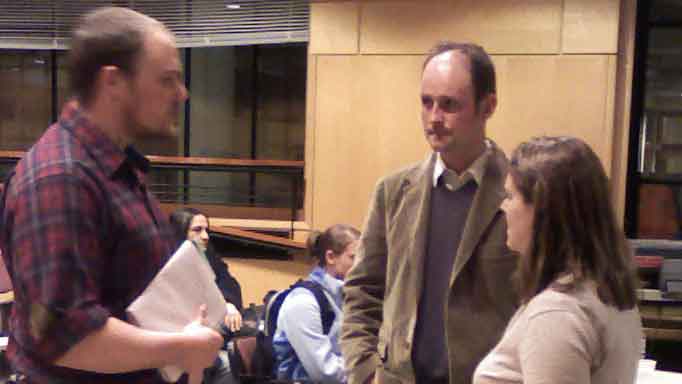Science Writers Advice: Build Multimedia & Networking Skills
-
-
slice.mit.edu
Filed Under
Recommended
The world of journalism is in financial turmoil, but science writing is still a great gig. Three writer/editors—either current or former Knight Journalism Fellows—described the thrill of (mostly) following their own curiosity among the wonders of contemporary science. At an IAP talk Jan. 21, they shared tips on how to get started and get paid for it with their audience: MIT students.

Author Trisha Gura first started writing as a PhD student intent on getting out of the lab occasionally. She took an evening writing course taught by a Chicago Sun journalist, and was promptly invited to become a freelancer. Since then, she’s found internships then jobs through professional organizations and contacts. Most recently, she’s completed a book on eating disorders, learned to market her book using podcasts and email blasts; she also blogs at the Huffington Post and freelances for magazines.
BBC News science and technology reporter Jonathan Fieldes got his start through a recommendation from his night school writing teacher as well. First he worked in radio as a producer and now he's an online reporter writing one-three stories a day plus recording interviews and sometimes producing multimedia. Online writing tip: the first four sentences must tell the story.
Globe science and health editor Karen Weintraub said one of her best learning experiences was working for a small, but innovative, Virginia newspaper. “Don’t be afraid to step off the track to work with great people.”
Advice in brief: Get clips. Meet people. Develop good ideas and multimedia skills. Jobs mostly come via work experience and internships.
Resources
- National Association of Science Writers—great networking
- MIT Careers Office
- MIT Graduate Program in Science Writing
- MIT Online Alumni Directory—find mentors in science journalism






